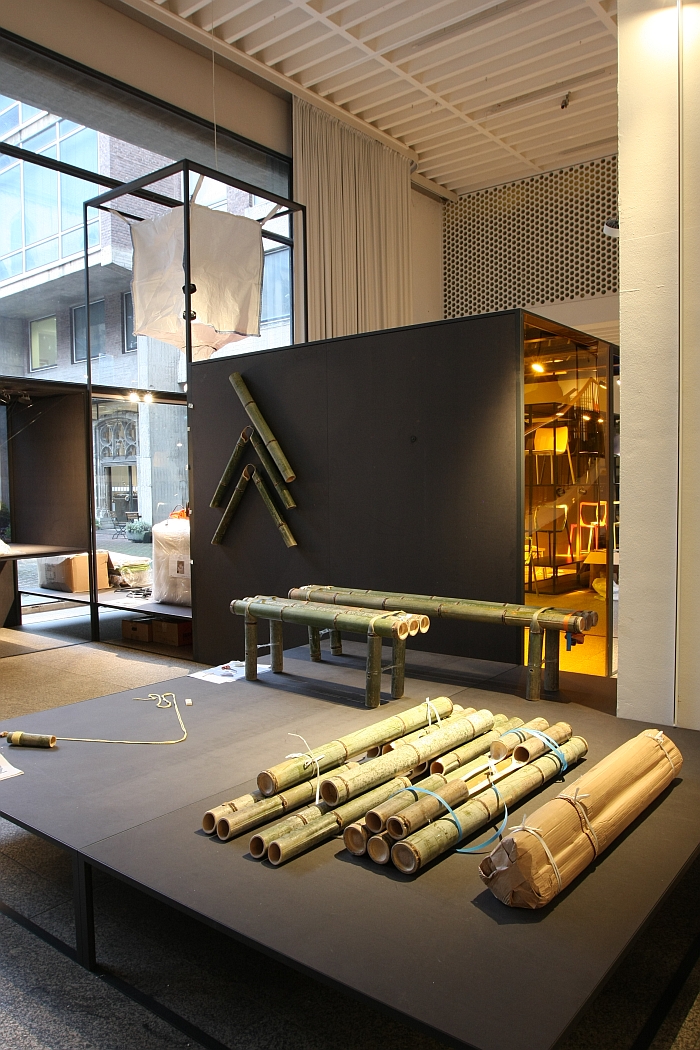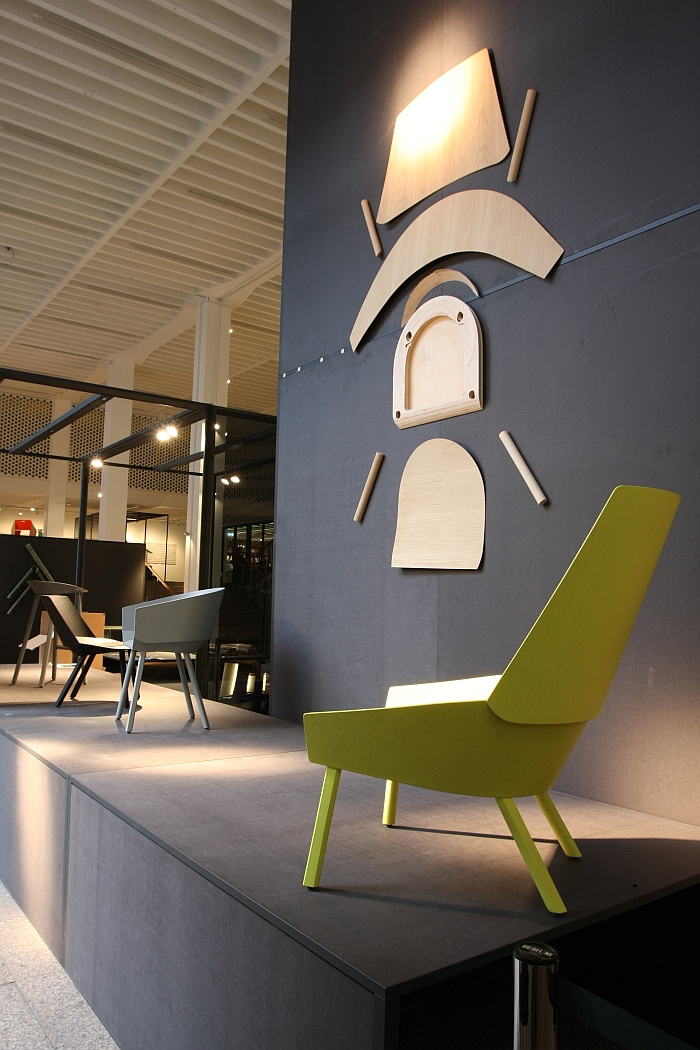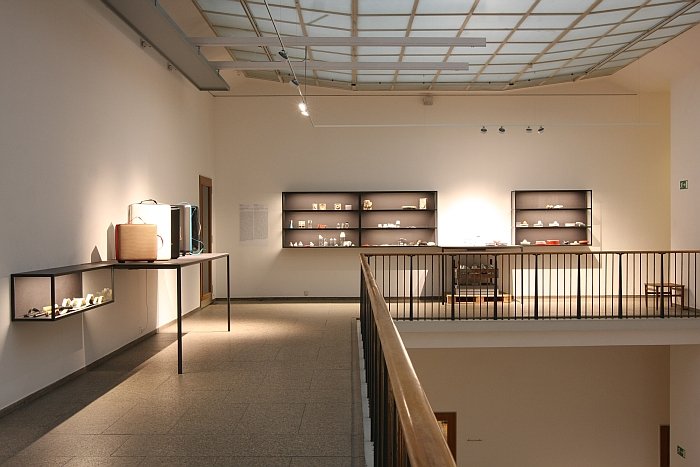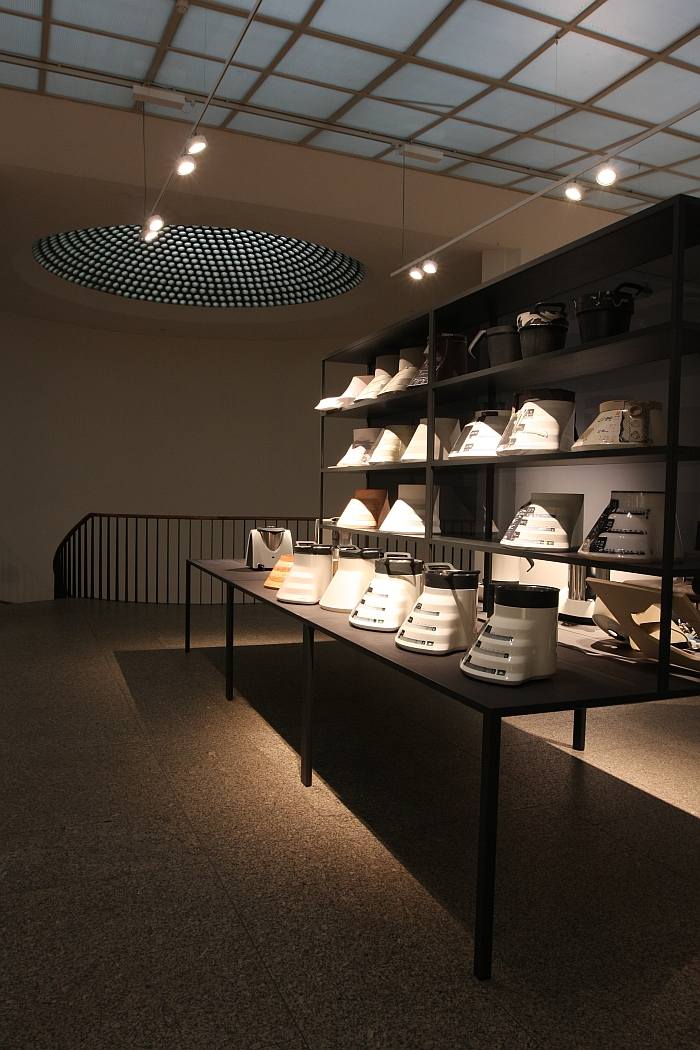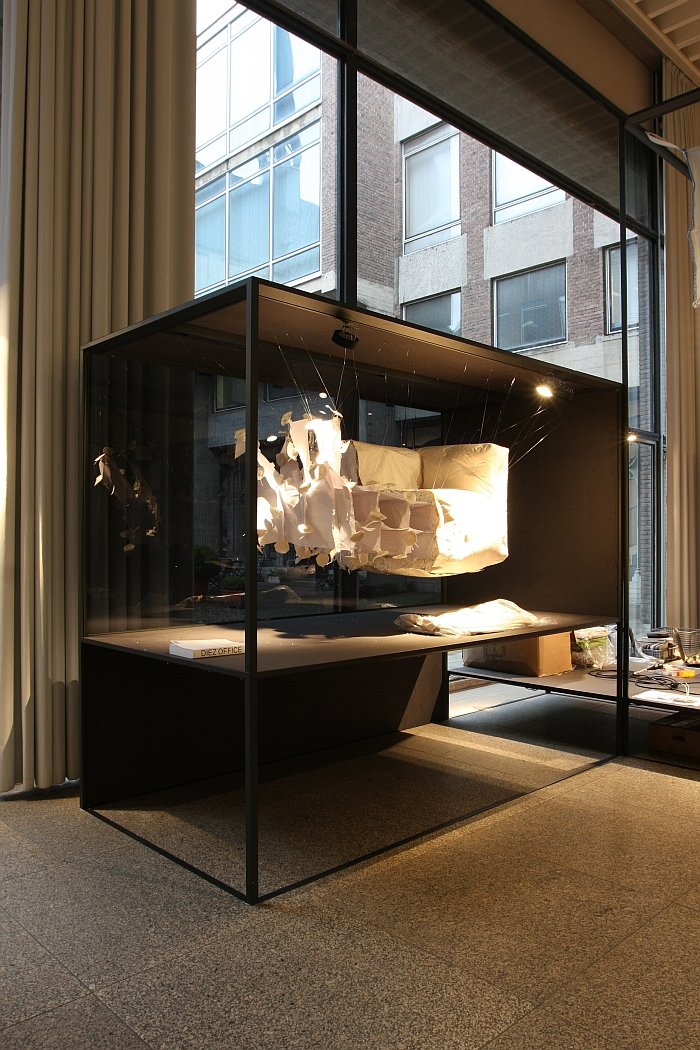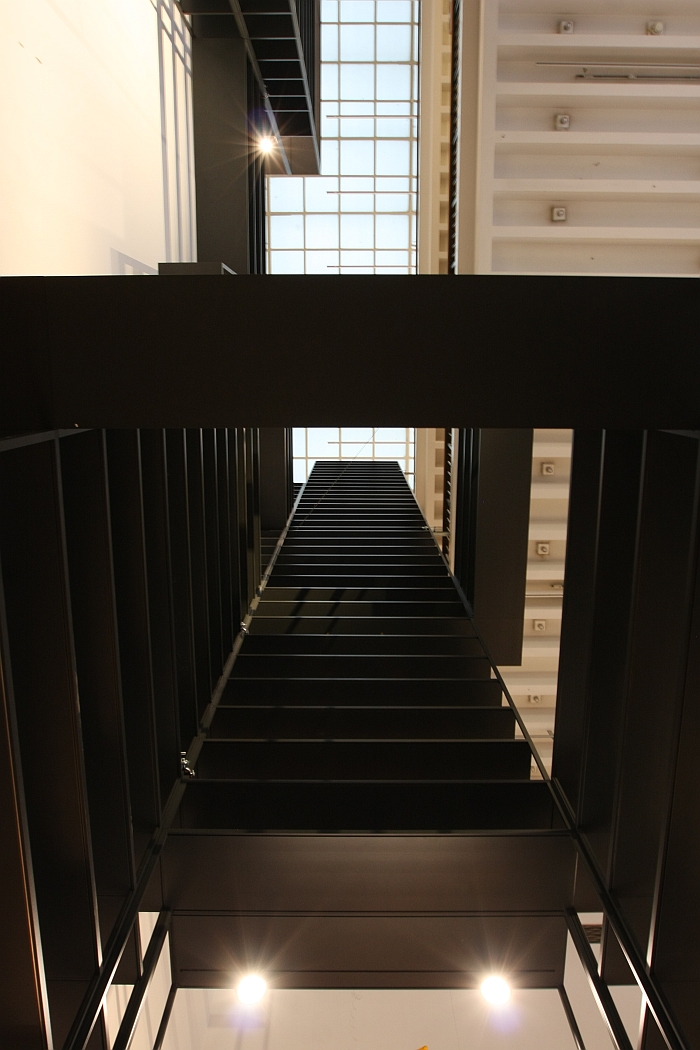With the exhibition Full House: Design by Stefan Diez the Museum für Angewandte Kunst Cologne, MAKK, present the first museal overview of the canon of the German designer Stefan Diez.
And an exhibition which in many respects also helps explain industrial design. Or at least the contemporary industrial design process.
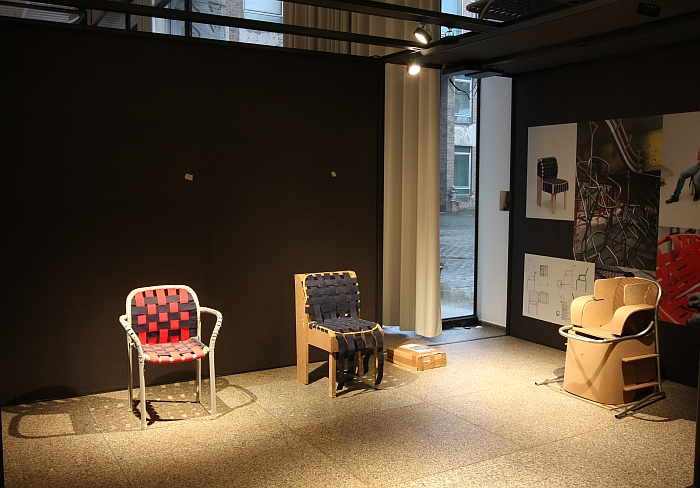
Born in 1971 into a established carpentry dynasty in Freising near Munich, Stefan Diez initially completed a carpentry apprenticeship in Stuttgart before moving on to study Industrial Design at the Staatliche Akademie der Künste in Stuttgart: studies supported by periods assisting first Richard Sapper and later Konstantin Grcic. Following his graduation in 2002 Stefan Diez established his own studio, Diez Office, in Munich, and immediately attracted international attention when, together with Christoph de la Fontaine, he won the Design Report Award at Salone Satellite in Milan. Full House documents what has happened in the intervening fifteen years.*
Although presenting an overview of Stefan Diez's work from the past fifteen years Full House is anything but a classic retrospective. And that deliberately so. "I didn't want to spend a year a half thinking backwards", explains Stefan Diez his approach to compiling the exhibition, "rather I wanted to spend a year and a half thinking forwards." The result is an exhibition of 26 selected projects, an exhibition which goes beyond familiar works such as Houdini for e15, Chassis for Wilkhahn or the 404 collection for Thonet, and which also explores projects which, for one reason or other, never made it out of the studio, yet which in their own way help explain how Stefan Diez works. Similarly the three new projects being unveiled in context of the exhibition: an office chair programme for Wagner, a lamp family for Vibia, and - and the most dominant, or perhaps better put, omnipresent, project in the exhibition - a further development of the New Order system for HAY.
A further development which increases the scale and variability of the system to allow for the creation of room size structures with integrated lighting. A further development which takes New Order beyond its current domestic and office contexts and makes it an exhibition and display system, be that museal - as in Full House where it serves as the exhibition architecture - or in commercial and trade contexts. And represents the most wonderfully logical and, patently obvious, further development. Back at Orgatec 2014 we noted "We’ve always liked New Order, but the more it grows, the more it appeals." It just grew again. And got more appealing. At the risk of bringing another system into the discussion, Fritz Haller went from buildings to sideboards, Stefan Diez is well on his way to completing the return trip.
Presenting the 26 projects as individual moments rather than as a chronological or generic progression Full House explains the 26 projects in context of their development and/or defining features. An exhibition design concept which means that alongside the respective objects stand prototypes, sketches and production tools, all supported by informative, bi-lingual German/English, texts which provide the necessary detail without overtaxing. And most importantly, an exhibition design concept which helps explain the background to Stefan Diez's approach to and focus in his work: rooted in craft and materials Stefan Diez is primarily concerned with developing and optimising processes, of exploring and advancing how products are made, and less in the product per se. A focus which raises the obvious question as to where does that leave considerations on form?
"Generally the form doesn't interest me in the first instance, the form only interests me as the manifestation of an idea", answers Stefan Diez, "for me a form is only attractive if it has a logical association to the reason why it has been created."
A classic rationalist position, and one which could be considered dangerous in our contemporary visual world of instant gratification and style over content: yet the fact the majority of the 26 projects are as aesthetically pleasing as they are practical and functional providing the apparent proof of the validity of that position. The less aesthetically pleasing character of one or the other project which never made it out of the studio, simply adding even more weight to the argument.
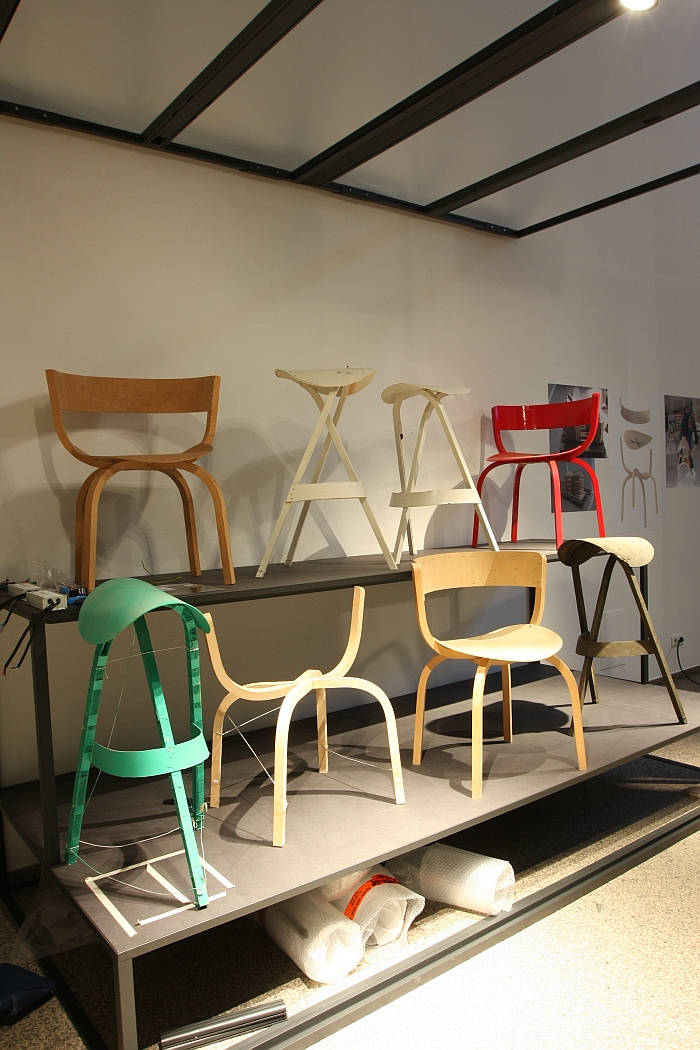
An inevitable consequence of preparing such as exhibition is that it forces one to closely consider your work, one can think forward, must look backwards, and inevitably consider the developments which have occurred. Which for Stefan Diez means?
"Not only are the projects much more complex now, but I've become much more self-confident about my own capacities."
An increased self-confidence because you have seen that things have worked, that you can realise successful projects?
"I'd say it is more that in the early days I regularly went too far, crossed borders I shouldn't have, and so struggled", reflects Stefan Diez. "However over time we have learned to remain on the right side of the border. A project is a good project when it goes as far as possible, but not so far that it becomes impossible. And so the challenge as a designer is to get as close as possible to the border, but to remain within the possibilities of today"
And so through the experiences of the past fifteen years you've developed a better sense of where that border is, or.....?
"Exactly, and what I really like about the situation we are now in is that we are much more aware of how much we can still learn, we understand better how to use the knowledge we have in order to become more precise in our work and so to reach further and better"
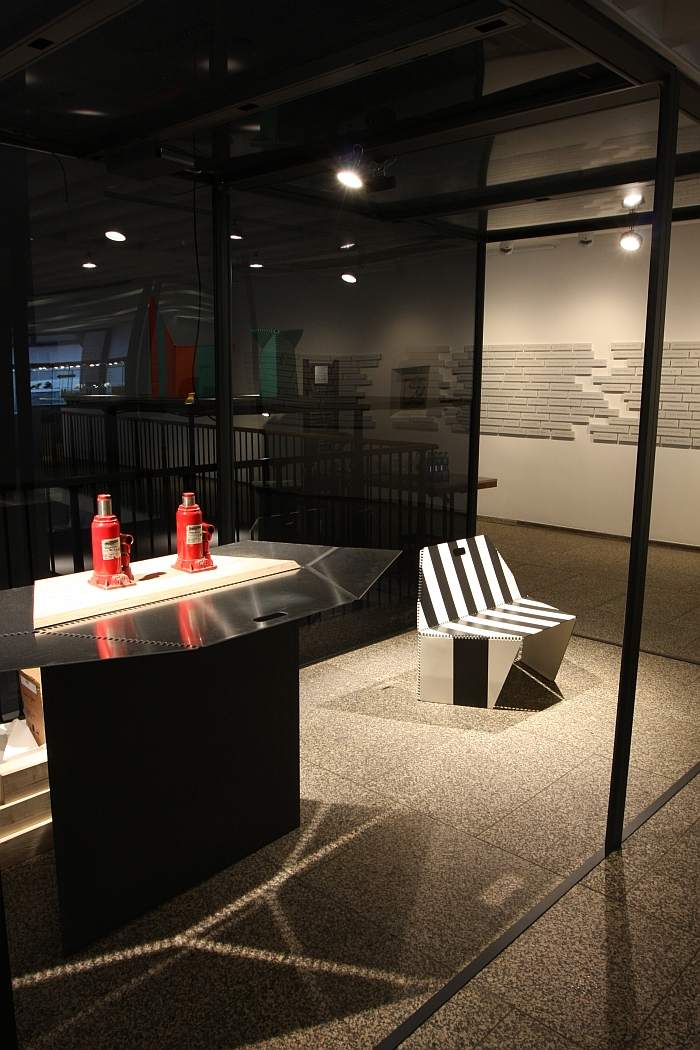
The proposal for the exhibition was made to Stefan Diez in summer 2015 and aside from the relatively short preparation time, Stefan Diez's principle consideration when deciding whether or not to accept was the location, "Presenting an exhibition in Cologne is like exposing yourself public" laughs Stefan Diez, "it isn't like exhibiting in any other city where you simply have a public who are interested in design, exhibiting in Cologne is in many ways a family affair, it's like cooking for the family at Christmas!"
The meal that Stefan Diez has served up doesn't disappoint.**
A highly accessible, well conceived and neatly executed exhibition Full House works on different levels: for those wanting to understand more about what industrial design is, how industrial design processes work and what industrial designers actually do all day, Full House provides the answers. As it also does for those with an understanding of such, but who are interested in understanding how Stefan Diez approaches his work. How Stefan Diez understands his work. What Stefan Diez actually does all day.
And for Stefan Diez? What has the exhibition brought him?
"We have profited a lot from the process of looking back, reflecting, cleaning up", he explains, "and now everything is much clearer, things I may have thought I knew I realise I don't, and I have, in a way, a more honest view, a more settled view and that is an excellent starting point for developing new projects."
A position reached as a logical consequence of process and material. One would expect no less from a Stefan Diez exhibition.
Full House: Design by Stefan Diez runs at the Museum für Angewandte Kunst Köln, An der Rechtschule, 50667 Cologne until Sunday June 11th
Full details can be found at www.makk.de
* In the interests of completeness and honesty, when we viewed the exhibition the team were still busy arranging it: as such we haven't seen the finished, complete, exhibition. Cannot therefore make any comment as to the overall effect of the exhibition, if it functions as a whole, if there is anything about it which niggles us. We know. As if! This text is based solely on what we did see. However what we did see impressed us, and we genuinely see little reason to doubt that the complete exhibition will do anything other.
** Again we haven't seen it all. We're sticking our necks out. But with confidence!
